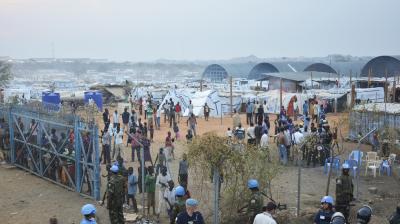South Sudan: a crisis of sovereignty
In December 2013, South Sudan descended into crisis and the nascent state began to deal with internal and external sovereignty challenges. This paper outlines some of the political, security and economic dynamics of the crisis.
What started as a political conflict in South Sudan in December 2013 has created a community security crisis drawing in a range of uniformed, community and foreign security actors. At the heart of the crisis, are fundamental questions about democratic values, about accountability and justice, and about overcoming narratives of marginalisation, impunity and ethnic bias. The main argument presented in this paper is that the current crisis in South Sudan is the result of challenges to the internal legitimacy of the ruling party as part of the state formation process and the expression of sovereign authority. This crisis has become a civil war in which the state is beginning to deal with its legitimacy and sovereignty issues within a deeply fragmented country and highly competitive regional political economy.
In this report, Lauren Hutton explores the internal and external dynamics affecting the sovereign authority of the South Sudanese state. The paper is divided into sections addressing different aspects of state behaviour – the search for internal legitimacy; the search for security; and the search for economic growth and development. These sections provide an overview of the domestic context and key dynamics determining the national agenda. After the internal focus, the paper provides an overview of regional relationships that affect South Sudan’s internal and external political behaviour.


